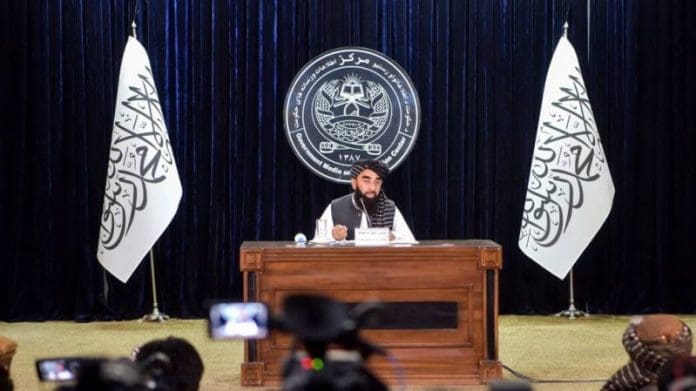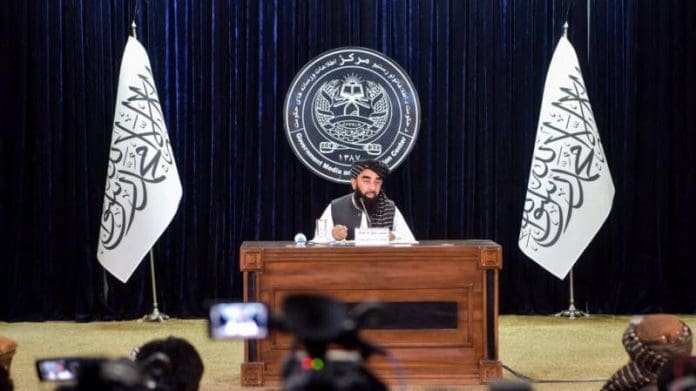
The Taliban government expressed deep frustration on Sunday over Afghanistan’s absence from the invitation list for the United Nations Climate Change Conference, arguing the country deserves representation as one of the world’s most climate vulnerable nations. The 30th Conference of the Parties (COP30) opens Monday in Belém, Brazil, drawing representatives from dozens of countries.
Afghanistan’s National Environmental Protection Agency (NEPA) issued a statement expressing deep concern over the fact that, despite Afghanistan being one of the most climate vulnerable countries, it has unfortunately not received an official invitation to COP30. The agency characterized the exclusion as contradicting the principles of climate justice, global cooperation and human solidarity.
The Taliban authorities, who returned to power in 2021 and remain formally recognized only by Russia, believe their diplomatic isolation should not prevent participation in international climate negotiations. Last year, the government sent a delegation to COP29 in Azerbaijan, but only as guests of the host nation rather than as parties directly involved in negotiations.
Afghanistan accounts for approximately 0.06 percent of global greenhouse gas emissions yet ranks among the countries most vulnerable to climate change effects, according to scientists. The country faces severe environmental challenges including worsening droughts, shrinking groundwater reserves and rising temperatures that threaten the livelihoods of millions.
About 89 percent of Afghanistan’s population depends on agriculture for survival, according to UN data. This heavy reliance on farming makes the nation extremely vulnerable to shifts in climate patterns, rainfall and water availability. The agricultural sector forms the backbone of an economy already devastated by four decades of conflict.
Between 2020 and 2025, Afghanistan experienced repeated droughts that severely impacted coping capacities and drastically reduced groundwater levels, in some cases by up to 30 meters, according to UN warnings issued in April. These water shortages have created humanitarian crises in rural areas where communities struggle to maintain crops and livestock.
The timing of Afghanistan’s exclusion appears particularly significant as the UN confirmed 2025 is on course to become among the hottest years ever recorded. Climate scientists warn that vulnerable nations face escalating risks from extreme weather events, crop failures and water scarcity as global temperatures continue climbing.
The Taliban government has sought to position itself as a responsible environmental steward despite widespread international isolation over human rights concerns, particularly regarding women’s rights and freedoms. In late October, Taliban leaders organized an event in Kabul titled Afghanistan on the Road to COP30, intended to prepare for participation at the current summit.
The Bakhtar News Agency, which operates under Taliban control, described that conference as holding special significance for Afghanistan, providing an opportunity for Afghan experts, specialists and youth to have their voices heard internationally and to showcase the country’s environmental realities on global platforms.
Afghanistan’s exclusion from COP30 reflects the complex intersection of climate policy and international diplomacy. The Taliban’s lack of formal recognition by most governments creates practical challenges for participation in UN sponsored conferences, even as climate change remains a threat that transcends political boundaries.
Environmental advocates have long argued that climate discussions should include all affected populations regardless of political circumstances. Afghanistan’s situation presents a test case for whether humanitarian and environmental concerns can be separated from diplomatic recognition and political disagreements.
The COP30 conference in Brazil runs through November 21 and focuses on strengthening global commitments to reduce greenhouse gas emissions and provide financial support to developing nations facing climate impacts. Wealthy nations often face pressure at these summits to increase funding for climate adaptation and mitigation efforts in poorer countries.
Brazil’s selection as host nation holds symbolic importance given the Amazon rainforest’s critical role in global climate regulation. The conference venue in Belém sits at the gateway to the Amazon, underscoring discussions about deforestation, biodiversity and sustainable development.
The United States will not attend COP30 after President Donald Trump withdrew from the Paris Climate Agreement during his first day back in office in 2025. Trump’s decision means American taxpayer funds previously allocated to international climate commitments will not be disbursed.
Meanwhile, Syrian President Ahmed al Sharaa attended the summit, marking the first participation by a Syrian president in the annual climate conference since its establishment in 1995. Sharaa, formerly known as Abu Mohammed al Jolani, arrived in Brazil on Thursday for bilateral meetings alongside the main conference proceedings.
Afghanistan’s population of more than 48 million people faces mounting challenges from environmental degradation compounded by poverty, conflict and limited infrastructure. The country’s exclusion from international climate forums may limit access to potential funding mechanisms designed to help vulnerable nations adapt to changing conditions.
